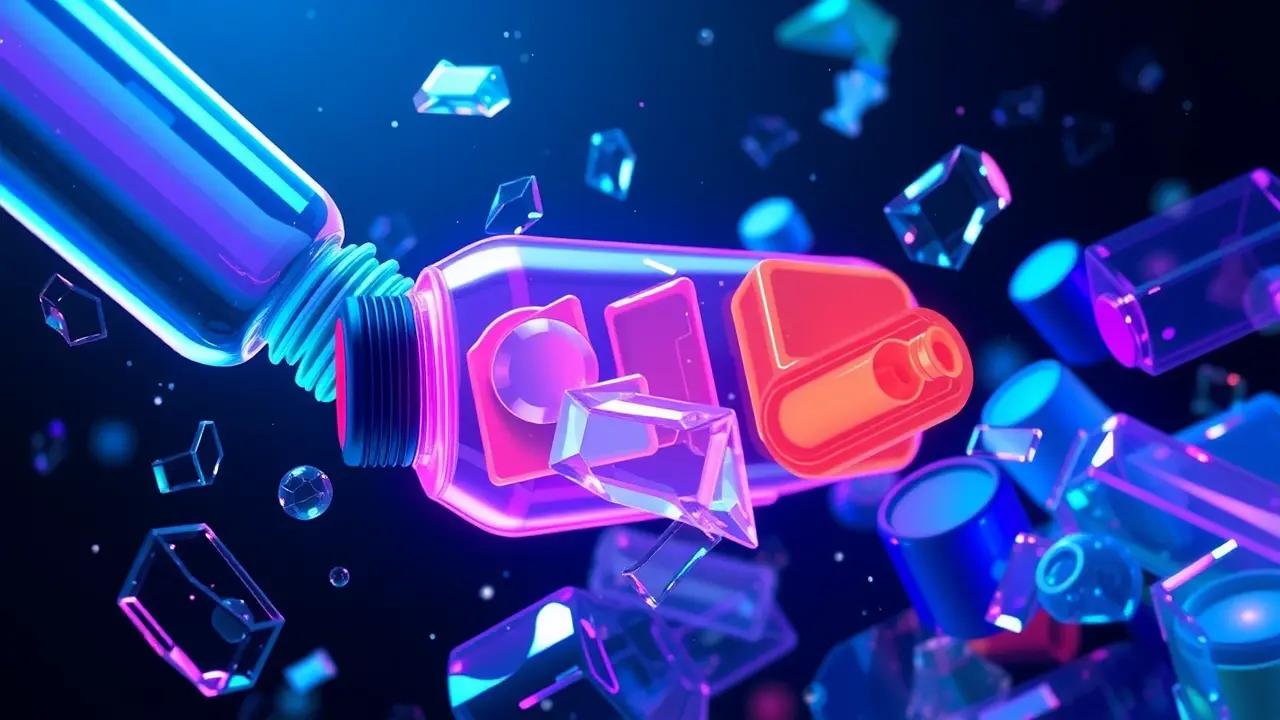
SciencechemistryGreen Chemistry
MacroCycle's Recycling Method Cuts Energy Use for New Plastic
RA
Rachel Adams
2 weeks ago7 min read3 comments
In a development that could fundamentally reshape our relationship with the synthetic materials that permeate modern existence, the company MacroCycle has unveiled a recycling methodology that dramatically slashes the energy required to produce new plastic. This isn't merely an incremental improvement; it's a potential paradigm shift, promising to lower costs to a point where recycled material could finally compete on a level economic playing field with virgin plastic, a long-elusive goal for the circular economy.For decades, the Sisyphean struggle against plastic waste has been hampered by a brutal thermodynamic reality: breaking down the stubborn polymer chains of used plastics often demands more energy—and thus more cost and carbon emissions—than simply creating new ones from fossil fuels. This perverse economic incentive has fueled a linear 'take-make-dispose' model, where mountains of packaging, discarded electronics, and single-use items choke our landfills and infiltrate our oceans, from the deepest trenches to the most remote Arctic ice.MacroCycle's breakthrough, rumored to involve a novel catalytic process that gently 'unzips' polymers at a molecular level under milder conditions, attacks this problem at its root. Imagine the difference between trying to dismantle a Lego structure brick by brick with your fingers versus smashing it with a hammer and then trying to reassemble the fragments; the former is precise and energy-efficient, while the latter is chaotic and wasteful.This is the kind of fundamental efficiency leap we're discussing. The implications are staggering.If scaled successfully, this technology could sever the plastic industry's entrenched dependency on petrochemical feedstocks, turning the existing glut of plastic waste into a valuable resource reservoir. This isn't just about cleaner beaches or less visible pollution; it's about addressing the often-invisible carbon footprint of plastic production, which is projected to account for 15% of the global carbon budget by 2050 if left unchecked.However, the path forward is strewn with challenges that extend beyond the laboratory. The scalability of any novel process is a monumental hurdle, requiring billions in infrastructure investment and a complete rethinking of collection and sorting systems, which remain woefully inadequate in much of the world.Furthermore, we must confront the uncomfortable truth that our consumption patterns are the root cause. Does a more efficient recycling technology inadvertently grant a 'license to pollute,' allowing producers and consumers to justify continued overuse of single-use plastics under the guise of recyclability? The history of environmental solutions is littered with technological fixes that were undermined by behavioral and systemic inertia.True progress will require a multi-pronged assault: embracing innovations like MacroCycle's while simultaneously championing aggressive policies for reduction and reuse, and fostering a cultural shift that views plastic not as a disposable convenience but as a durable material to be perpetually cycled. The promise is a future where the plastic bottle you discard today is effortlessly transformed, with minimal energy, into a new bottle of equal quality tomorrow, finally closing the loop on one of the most persistent and damaging materials of our age.
#plastic recycling
#energy reduction
#cost efficiency
#sustainable materials
#featured
#MacroCycle
#TechCrunch Disrupt 2025
Stay Informed. Act Smarter.
Get weekly highlights, major headlines, and expert insights — then put your knowledge to work in our live prediction markets.
Related News
Comments
Loading comments...
© 2025 Outpoll Service LTD. All rights reserved.